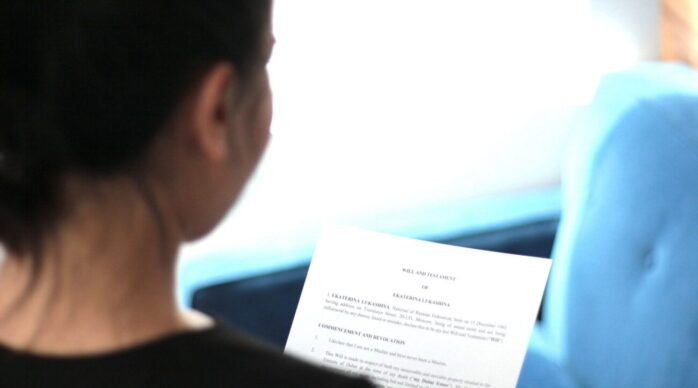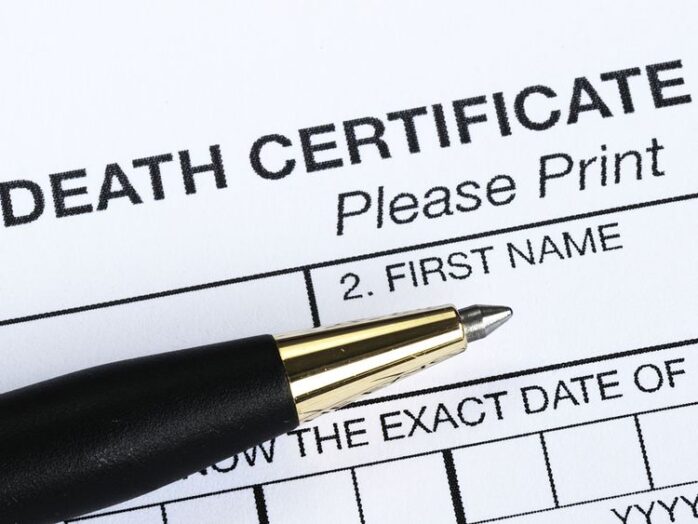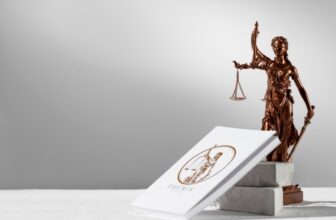
Losing a loved one is undoubtedly a challenging experience, and amidst the grief, there are practical matters that need attention. In Dubai, navigating the probate process after someone dies can seem daunting, but understanding the steps involved can make it more manageable. Let’s delve into what probate is, the steps involved in the probate process in Dubai, and how to navigate it effectively.
Table of Contents
Understanding Probate
Probate is the legal process of administering the estate of a deceased person, ensuring that their debts are paid and their assets are distributed according to their wills in Dubai or the laws of intestacy if there is no will. In Dubai, the probate process is governed by local laws and regulations.

Source: gulfnews.com
Initiating the Probate Process
1. Notification of Death
The first step in the probate process is to notify the relevant authorities and institutions about the death. This includes informing the hospital, if applicable, and obtaining a death certificate.
2. Appointment of Executors or Administrators
If the deceased had a will, the appointed executor will need to apply to the Dubai Courts to obtain a Grant of Probate. If there is no will, the court will appoint an administrator to manage the estate.
3. Inventory of Assets and Liabilities
The executor or administrator is responsible for compiling an inventory of the deceased’s assets and liabilities. This includes bank accounts, properties, investments, debts, and any other relevant assets or liabilities.

Source: khaleejtimes.com
Probate Proceedings
4. Submission of Documents to the Dubai Courts
Once the inventory is prepared, the executor or administrator must submit the necessary documents to the Dubai Courts to initiate the probate proceedings. These documents typically include the death certificate, the deceased’s will (if applicable), and any other relevant legal documents.
5. Publication of Probate Notice
The Dubai Courts will publish a notice of the probate proceedings in local newspapers to allow any interested parties to come forward with their claims or objections.
6. Verification of Claims and Settlement of Debts
During the probate process, creditors have the opportunity to submit claims against the estate. The executor or administrator must verify these claims and settle any outstanding debts using the assets of the estate.
7. Distribution of Assets
Once all debts and taxes have been settled, the remaining assets of the estate can be distributed to the beneficiaries according to the terms of the will or the laws of intestacy.

Source: khaleejtimes.com
Legal Representation in Probate Matters
Securing legal representation in probate matters in Dubai is a wise step, particularly given the intricacies of local laws and regulations. Probate lawyers are specialists who guide executors and beneficiaries through the complex process of estate administration. Their expertise is invaluable in interpreting wills, handling legal filings, and representing the estate’s interests in court. Lawyers can navigate the nuances of both civil and Sharia law, ensuring compliance and safeguarding the estate’s assets. They play a crucial role in resolving disputes, whether among beneficiaries or with creditors, and can expedite the probate process by efficiently managing required documentation and procedures. For expatriates, legal representation becomes even more critical due to the potential application of Sharia Law in the absence of a will. Engaging a probate lawyer in Dubai can provide peace of mind, ensuring that the deceased’s wishes are honored and the estate is settled fairly and efficiently.
Understanding Sharia Law in Probate
In Dubai, Sharia Law plays a significant role in the probate process, especially for Muslims or in cases where there is no will. Under Sharia Law, the distribution of a deceased’s estate follows specific Islamic principles, which can differ markedly from Western inheritance practices. The assets are divided among family members according to predetermined shares, with male heirs typically receiving double the portion of female heirs in the same degree of kinship. For non-Muslim expatriates concerned about the application of Sharia Law to their estate, Dubai offers alternatives. By drafting a will through the Dubai Courts or the DIFC Wills Service Centre, non-Muslims can ensure their assets are distributed according to their wishes, bypassing the default Sharia-based distribution. This provision highlights the importance of understanding the impact of Sharia Law on estate planning and probate proceedings in Dubai, allowing individuals to make informed decisions about their estate.

Source: miningconferences.org
Role of the Dubai International Financial Centre (DIFC) Courts
The DIFC Wills Service Centre offers a distinct avenue for non-Muslims to register wills according to their preferences, bypassing Sharia Law. The DIFC Courts handle these cases, providing a legal framework aligned with international standards. Understanding this option can offer peace of mind to expatriates concerning their estate planning.
Estate Planning and Will Drafting
Proactive estate planning and will drafting are essential to avoid complications in the probate process. A well-drafted will can clarify your wishes, designate guardians for minors, and appoint executors. In Dubai, it’s advisable to consult with legal experts familiar with local and expatriate estate planning to ensure your will is valid and enforceable.
Tax Implications and Estate Settlement
In Dubai, the probate process involves settling the estate of the deceased, which includes addressing any tax implications. While Dubai is known for not imposing an inheritance tax, there are other financial considerations that executors and beneficiaries must be aware of. These may include outstanding debts, mortgage obligations, and property transfer fees that the estate might be liable for. Executors are responsible for ensuring that all financial obligations are met before distributing the assets to the beneficiaries. This might involve liquidating assets to cover debts or settling any outstanding liabilities. It’s also important to consider the potential for bank accounts to be frozen upon the death of the account holder, which can impact the estate’s liquidity. Proper planning and understanding of the financial landscape are crucial for a smooth estate settlement process, ensuring that the deceased’s assets are distributed fairly and by their wishes or the applicable laws.

Source: jnylaw.com
Conclusion
Navigating the probate process in Dubai can be complex, but with proper guidance and understanding, it can be managed effectively. By following the necessary steps and fulfilling the legal requirements, the estate of the deceased can be administered smoothly, ensuring that their final wishes are honored and their assets are distributed appropriately. If you require assistance with the probate process, seeking advice from legal professionals specializing in probate matters can provide invaluable support during this challenging time.







